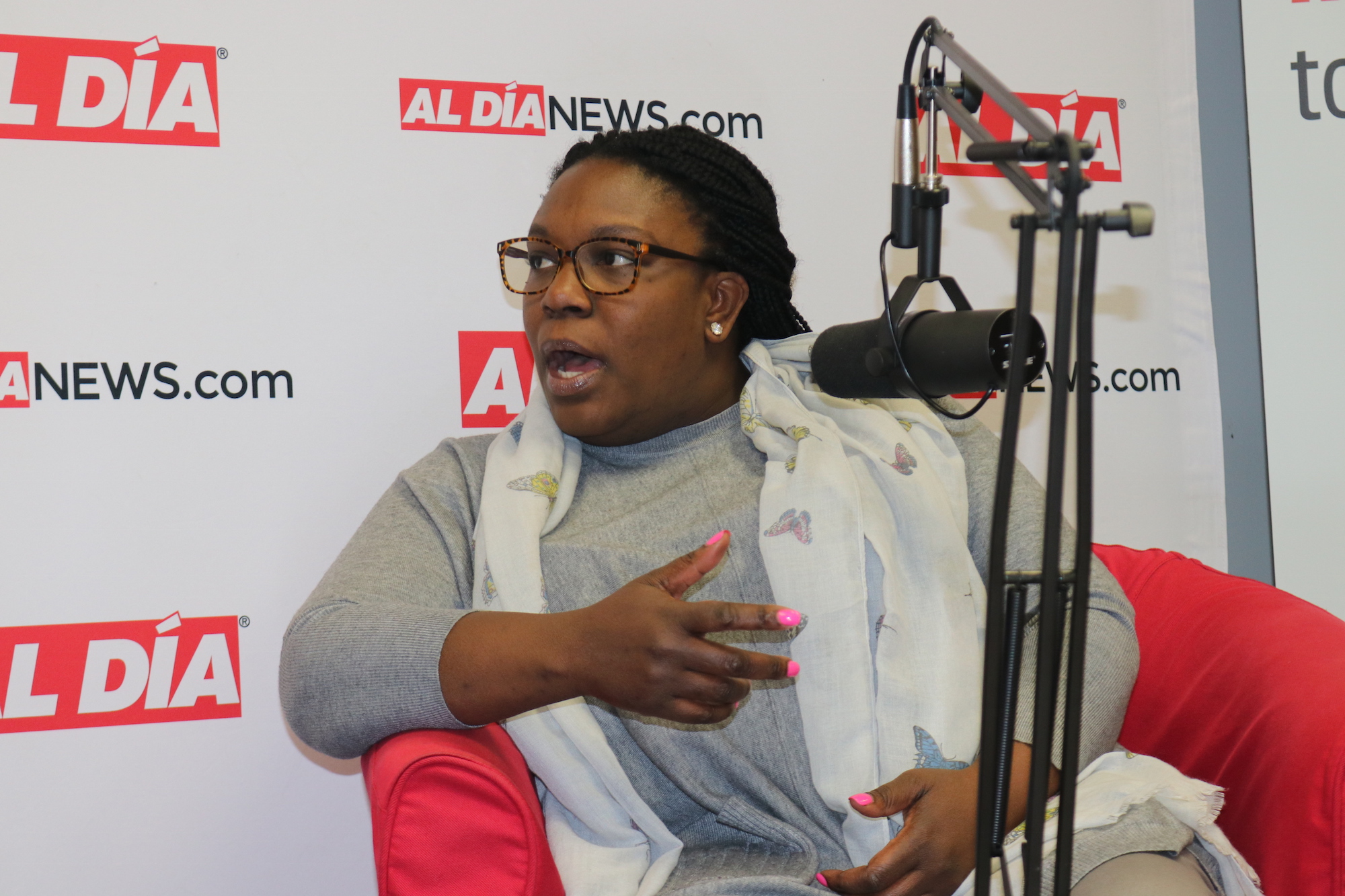
Councilmember-elect Kendra Brooks talks first-term City Council goals
The smoke has cleared after her upset victory in Nov. 5’s general election and now it’s down to business preparing to assume office as Philadelphia City…
Kendra Brooks doesn’t remember the order, or exactly who, but on the morning of Nov. 5, she received what she called a “very interesting series of phone calls.”
“It might’ve either been from the Mayor? Or the Council President? And then it was like Elizabeth Warren,” said Brooks.
Two weeks from the day she made Philadelphia history by becoming the first third-party candidate ever elected to City Council, Brooks admits it’s still “very surreal.”
“Even when I’m out and about, and young women stop me and are just like: ‘Oh my god, we did this,’” she said.
Those interactions have gone up in Brooks’ life, but as she said at her victory party on Nov. 5, winning the election was “only the beginning.”
“Now the real work begins,” Brooks said at the time.
Her campaign built the connections to propel her to the office, but now that she’s there, Brooks says she looks forward to getting to know the other members of City Council.
“As colleagues. Not as me being the activist at your door,” said Brooks.
But beyond breaking the ice, she’s also maintained her campaign mission of organizing and coalition-building around specific issues to find solutions.
“In order to pass policy, people have to want to talk to you,” said Brooks.
Many of those she’s met with (and still plans to meet) are champions in their own right.
“This is all about issues, not about personalities. So I’m going through the list based on that,” said Brooks.
As of her visit to AL DÍA on Nov. 18, Brooks said she’d met with “two or three” councilmembers so far, including Councilmembers María Quiñones-Sánchez and Kenyatta Johnson, and plans to meet with more in the coming weeks.
When it comes to the problems in the city, Brooks has a plethora she wants to confront.
But on her visit to AL DÍA, she mentioned gun violence, toxic school buildings and housing as her top three.
When discussing gun violence in the city, Brooks is saddened to have to admit that her children have buried more friends than herself.
“It’s disheartening,” she said.
Brooks believes that the uptick in violence is related to the disinvestment in Philadelphia’s education system that has occurred over the course of decades.
The result: a lack of hope among what Brooks calls a generation forgotten by its city.
“We have failed a generation of children,” she said.
Brooks’ solution is similar to many of her future colleagues in that it’s a “collective, solid plan” that will take time.
“It didn’t happen overnight, we can’t end it overnight,” she said.
Brooks’ solution also doesn’t just involve City Council. She plans to rely on city communities as much as City Hall and the state to develop best practices.
Brooks says she looks forward to being a part of those conversations.
“I don’t have all the answers, but together we’ll come up with some solutions,” she said.
RELATED CONTENT
In schools, she wants as much emphasis placed on students’ mental health as is put on their educational achievement.
Brooks’ focus on improving students’ mental health comes from volunteering while unemployed at one of her daughter’s schools and hearing the experiences of some of her classmates.
“I was traumatized,” she said.
But it’s difficult to create an environment to cultivate learning when some of Philadelphia’s old school buildings turn toxic.
The issue is another one of Brooks’ top priorities with which she has personal experience.
Once, her daughter got sick and Brooks was put out of her house for its high levels of lead.
This high prevalence of dangerous lead levels was investigated at homes and schools across Philadelphia in The Philadelphia Inquirer’s Pulitzer-Prize nominated series “Toxic City.”
The reporting brought more investment and accountability from officials, but a recent WHYY report from another elementary school shows that administrators are still failing to adequately address dangerous lead levels and unclean drinking water in schools.
Brooks once organized around the issue, bringing parents from North and South Philly together to force action regarding asbestos in two schools.
When the time came for both sets of parents to unite, they did — a moment Brooks gets emotional about and views as a forerunner to her own campaign for public office.
She hopes to be a similar catalyst for coalition-building as a Councilmember at-large.
“This is the Philadelphia we need to see,” said Brooks. “The systems are working against everyone.”
When talking about housing, one issue stands above them all in Brooks’ mind.
The 10-year tax abatement is a hot topic in City Hall, with City Council’s current iteration trying its best to get reform through before a new crop of legislators (including Brooks) assume office.
Brooks maintains her campaign position calling for its end, but with the reform talk in mind, she doesn’t know the end result if she ever gets the chance to discuss in an official capacity.
“What we end up with? I don’t know. But I’m still starting at: ‘Let’s end this 10-year tax abatement,’” said Brooks.











LEAVE A COMMENT:
Join the discussion! Leave a comment.